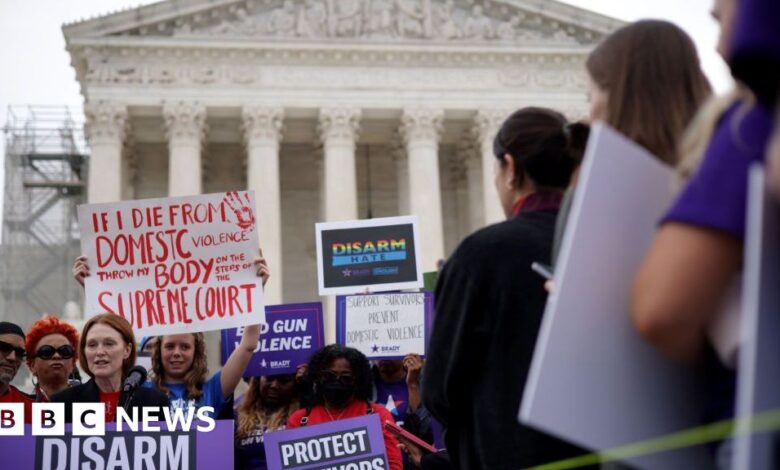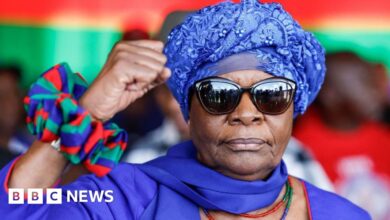Domestic abusers cannot own guns, US Supreme Court rules

The Supreme Court has ruled that people with domestic violence restraining orders do not have the right to own guns.
The 8-1 decision upheld a 30-year-old law that prohibits people with domestic abuse restraining orders from possessing guns.
At the center of the case is Zackey Rahimi, a Texas man who was prosecuted under the 1994 law but filed an appeal after the court significantly expanded gun rights in a 2022 ruling.
In that decision, the court determined that the U.S. constitutional guarantee of the right to “keep and bear arms” protects a broad right to carry a handgun outside the home for self-defense.
It also creates a new challenge for gun laws, saying they must be rooted in “historical tradition”.
That allowed Rahimi to appeal his conviction under the 1994 law, arguing it did not pass the new test and taking the fight to the country’s highest court.
During the November hearing, Rahimi’s attorney, James Matthew Wright, said he could find no historical precedent for people being disarmed, other than those convicted of felonies — which is not includes the subject of the ban.
The US government, wanting to keep the law intact, argued that “dangerous” individuals, such as British loyalists during the American Revolutionary War, had been disarmed in the past.
Government lawyers also said women living in a home with an armed domestic abuser are five times more likely to be murdered.
Rahimi, 23, a small-time drug dealer, according to court records, is serving a six-year sentence in a Texas federal prison. He is also awaiting state trial.
In 2020, his then-girlfriend was granted a restraining order by the court after he pulled her into his car, causing her to hit her head on the dashboard, during an argument near his home in Arlington, Texas. He also shot at a bystander who witnessed the assault.
Despite a court order suspending his handgun license and prohibiting him from possessing any firearms, he kept his weapons and was involved in five public shootings later that year .
However, in a handwritten letter from prison last year, he said he would “stay away from all guns and weapons” after his release.
Chief Justice John Roberts delivered the court’s opinion on Friday.
“Where a restraining order concludes that an individual poses a credible threat to the physical safety of a sexual partner, that individual may — consistent with the Second Amendment — be banned,” he wrote. own guns”.
“Since their inception, our Nation’s gun laws have included provisions that prevent individuals who threaten physical harm to others from misusing firearms.”
Justice Clarence Thomas, a conservative, was the only one of the nine justices to dissent.




